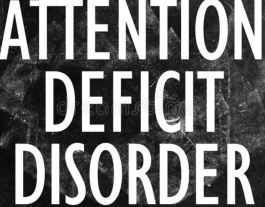I am a voracious reader. My nightstand is typically piled with books, and I have about 3-4 going at any one time.

There’s at least one fiction book, which is my treat reading before bedtime, and the way I wind down before sleep. I am not so into e-books. I have a Nook, but forget to charge it. I have a love for real pages that I can turn, a visceral and physical experience of a book that I am too old-fashioned to replace.
When I write, I integrate the things I read, the practices I attempt, and the swirling thoughts I notice while meditating or navigating my days. It helps me slow things down enough to consider how it all fits together.
My philosophy teacher used to recommend that we write to remember. When studying, write out concepts and ideas we want to understand or explore.
In biology or chemistry labs, we wrote to capture our protocols, and our results. Writing is a part of science, part of study, part art-form and part formal work.
Reading and writing do not come easily to everyone, and I am grateful that I have always enjoyed both since a young age. Fifteen years ago, toward the end of graduate school I was diagnosed with adult a.d.d. Now it makes sense to me that I can either hyper-focus or be challenged to finish a page without distraction.
I do not have the “h” part of the usual diagnosis (and women often do not manifest that part, or they train themselves out of it to be quiet, compliant little girls from a young age). But clearly the difference in my ability to focus was palpable after treatment and medication.

Before the diagnosis I had suffered from 2-3 periods of depression in my life, precipitated by burnout and anxiety. I had always struggled to pay attention during my “boring” classes, and often escaped into my imagination. Teachers knew I was smart, but they often said I was not working up to my potential. I finished salutatorian of my high school class, so clearly a lot of students may not have been working up to their potential…
What I find these days is that life is more about establishing the right rhythm for my days and weeks, rather than pursuing the elusive “balance” many strive for.
Filling days with to-do lists and activities may help us feel productive and in control of our lives. But resting, pausing and re-evaluating need to be a part of our lives too. An a.d.d.-oid brain is typically in motion constantly. I describe my thought processes as cascades, and they are very fluid and dynamic.
Normal people can typically compartmentalize their thoughts, like putting them in boxes, categorizing and organizing them. The a.d.d. brain tends not to work that way, instead flowing from thought to thought, in associative “play”. We create new categories, with different boundaries. Our brains leap outside boxes like playful puppies or kittens.
For years I spent time hiding my a.d.d., at the advice of well-meaning professionals that explained to me that employers would not necessarily understand, and may penalize me for it professionally. In every job I needed to “prove myself” with consistency for quite some time before advancing, very hard for the a.d.d.-oid mind that gets bored once it knows the routine. The first time I was able to hire administrative support to help with the details while I could focus on big picture work, I finally started realizing my potential.

My current position as an operational manager for an international team requires me to be quick thinking and to balance many factors in making decisions. I get to help my employees with career development (which I love) and coach them to develop their skills, especially when it comes to influence management in a large corporation with a matrix reporting structure.
I turned a weakness into a “superpower” of sorts, at least the way I am choosing to author my life and my story. I do not see it as a disability. I see it as a way of seeing around corners, flexibly solving problems, and bringing creativity to many teams.
As long as I find the right rhythm in my days, get time for rest, play and taking very good care of myself physically, I thrive. When I neglect myself, or slack off on good self-care routines, like getting enough sleep, healthy food, affection, love, and exercise, I suffer.
What I want to say to those suffering from depression, anxiety, a.d.d. or any other type of diagnosis: it does not have to define you or your life. You will need to learn to manage it, that is true. But it will give you unique insight, skills and resilience when you learn to manage it. You will benefit from more compassion for those who struggle. And if you learn to love yourself, and the unique way that your brain and body work, you can fully use your gifts.

Find your rhythm, find what makes sense for you. Find others that support your strengths and help you cultivate them. You deserve that. And it is possible.
Have a great week, friends.
cristy@meximinnesotana.com

Find your rhythm 💕💕great post and advice 👋👋
LikeLiked by 1 person